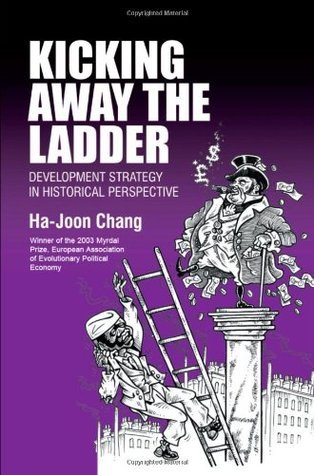What do you think?
Rate this book


196 pages, Paperback
First published July 1, 2002
"Solo después de la Segunda Guerra Mundial, Estados Unidos - con su supremacía industrial sin competencia- acabó por liberalizar el comercio y pasó a liderar la causa del libre comercio. Sin embargo, cabe señalar que Estados Unidos nunca lo practicó en la misma medida que lo hiciera el Reino Unido durante su período de libre comercio (de 1860 a 1932)"